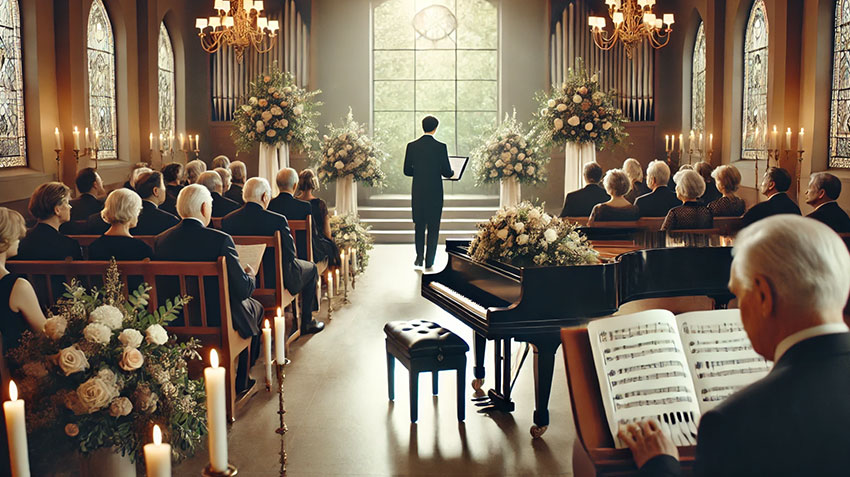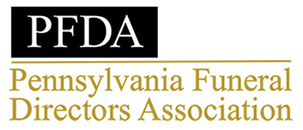
Losing an elderly family member, like a grandparent, is something many of us have to deal with.
Even though you know it’s going to happen someday, it’s never easy to accept the passing of an elderly loved one.
However, you can always honor your elderly loved one by arranging a meaningful funeral service as a final goodbye. There are many aspects to planning funerals but including classic funeral music is one of the most heartfelt ways to show your love towards them.
But choosing the right funeral music won’t always be easy, especially when it’s for the funeral of someone from a very different generation. Let’s explore how you can choose the appropriate funeral music for an elder.
1. Consider the Personal Connection
When choosing classic funeral music for an elder, try to find songs that hold some significance to your loved one. This may be an old timely song that was a favorite of theirs to sing to themselves or a song that played at an important event in their life, like a wedding.
Also, think about your elderly loved one’s cultural background. If there were any songs they liked that were significant to their culture, you should add them to your list of songs. If you’re not sure about which songs your loved one liked, try speaking with your other relatives for help.
2. Choose the Genre of the Songs
Sometimes your loved one may have liked a specific genre of songs and not just a few specific songs. Try to compile a selection of classic funeral songs from the genre of music that your loved one liked to listen to.
In case your loved one didn’t listen to a specific genre of music, you could choose traditional hymns, like “Amazing Grace”, which can offer attendees of the funeral a sense of comfort.
You could also include modern contemporary songs, like “You Raise Me Up” by Josh Groban, to resonate with younger attendees and family members. But avoid adding any upbeat-sounding songs to the playlist—this may be seen as very disrespectful by most attendees and family members.
3. Include Songs from Their Era
Trends and styles in music change as time goes on so try to incorporate songs from your elderly loved one’s generation.
For example, if your loved one’s generation was during the 1940s or the 1950s, choose songs from songs that were popular in those days, such as “I’ll Be Seeing You” by Billy Holiday and “Over The Rainbow” by Judy Garland.
To make the songs feel more personal, you could try playing them on classic record players to give the songs an authentic feel.
4. Incorporate Instrumental Solos
Instrumental solos can be very moving and instil powerful emotions in attendees and family members. Instead of playing songs with lyrics, you can call a musician to play an instrumental version of your loved one’s favorite song.
To make the solos more meaningful, see if any of your family members who play instruments can perform at the funeral. Otherwise, you can try hiring a musician to play at the funeral.
5. Create a Cohesive Flow
When compiling classic funeral music, you shouldn’t just play the songs in a random order—there should be some cohesion. Songs can instil emotions in a lot of people, so arrange your playlist in such a way that the songs reflect the mood during certain moments of the funeral.
For example, start by playing songs that can have a calming effect on the attendees to reflect the tone. Then conclude the funeral by playing songs that are uplifting and make people feel hopeful.
6. Reflect Religious Beliefs
If your loved one was very religious, you should consider playing only religious songs at the funeral. Think about which religious songs were significant to your loved one and include them in your playlist.
Also, you could try asking religious leaders who knew your loved one about the kinds of religious music that may be included in your playlist.
7. Test the Playlist
Once you’ve compiled and finalized your classic funeral music playlist, you should test it to see if it fits the funeral’s theme and resonates with people.
Ask your family members for their opinions on the playlist and consider any recommendations they give. Also, check if the songs work well together and match the stages of the funeral service.
If you’re unsure about the playlist you’ve created, ask a funeral home for their input. Let them review the list and give you some recommendations that may fit your loved one’s funeral better.
Frequently Asked Questions
Below are some commonly asked questions to consider:
1. How many pieces of music should be played during a funeral?
Typically, 3 to 5 pieces are played: one for the entrance, one or two during the service, and one for the exit.
2. Can classical music be used in a non-religious funeral?
Yes, classical music is versatile and can be used in both religious and non-religious services.
3. Is it appropriate to mix classical music with other genres?
Absolutely. Mixing classical music with other genres can create a personalized and meaningful service.
Work with a funeral home to create a classic funeral music playlist
Creating the perfect playlist for an elder’s funeral can be challenging when you’re not sure what to look for. Fortunately, many funeral homes offer to help their clients choose the appropriate music as part of their professional funeral services.
If you need help choosing the right songs for an elder’s funeral, get in touch with a reputable funeral home in Pittsburgh today.



